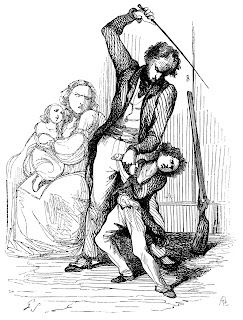Reference Passage:
Proverbs 17:8 (NIV)
A bribe is seen as a charm by the one who gives it;
they think success will come at every turn.
~~~~~~~~~~~~~~~~~~~~
Gifts open doors. The truth value of the statement is attested by recent events that have dispelled the aura of credibility and integrity long projected by current players in Indian politics. First, it was the gross anomalies in the management of finances for the Delhi Commonwealth Games 2010. Close on its heels, came media reports of a massive scam in the allocation of resources for mobile network operators, played by bribes of the order of trillions. The awestruck commoner cannot get carried away with criticism either – the very same modus operandi is at play day to day, everywhere from the railway platform for an illegal seat, to the police station for the verification of bogus records. Most of us are opportunistic, and cannot resist the temptation to jump the queue, given the chance.
Moreover, these are the days when exceptions of yesteryear, have subtly taken the place of the norm. Thus, we’ve progressed to the 'No gift, no opening' stage in which even justified ends, that are perfectly within the bounds of law, are faced with insurmountable obstacles which subside only at the sight of goodies under the table. Occassionally, the concept morphs into 'Bigger gift, bigger opening' that eventually shuts the door in the face of the needy, who have not the clout to buy their access to opportunity.
Things take an interesting turn, when the world of religion and faith attempt to play games by the same rules. The search for salvation and hope being a nearly global phenomenon, the possibilities of profit are vast, and the enterprising human mind has already stationed itself at Heaven’s door, expecting to way-lay those who come knocking there.
It was in 2008 that our layman vocabulary was enriched by the appearance of the term 'god-man', following the arrest of the notorious Santosh Madhavan a.k.a. Swami Amritananda Chaithanya in the Indian state of Kerala, on a cocktail charge sheet including rape, paedophilia, fraud and possession of illegal arms. Since then, several other high-profile personalities, ranging from different shades of the religious spectrum, have been apprehended and forced to practise their arts within the confines of prison, from time to time. This, by no means, imply that our law-and-order mechanism has successfully aborted the evil child before its birth. In reality, we’ve merely scraped the toe nails of a fully-grown Goliath.
In due recognition of the spiritual poverty of mankind, and God‘s gracious downpour through the incarnation of Jesus Christ, 'freely received, freely give' was among the founding principles of Christian mission work, visibly preached by pioneers who were stirred by a sacrificial spirit. Church history commences with consistent examples of the apostolic founding fathers in the first century, following the footsteps of Jesus Christ. Nevertheless, it did not take long for attitudes to change and economics to overtake Cross training. The thought that man could avail the fortunes of the Divine by a scheme of skin-deep 'buy-and-sell', was a possible seed for this deviation. True to human nature, the real struggle was to avoid the total surrender that the Cross implies, and comfort oneself with the knowledge that material sacrifices and certain ‘good deeds‘ would guarantee safe passage to Heaven. Thus motivated, some big pockets pushed their way into the fray, with scant regard for the deeper life that the Gospel calls for. Gradually and gladly, the evangelist would remind of sin or surrender no more, but find his way to drain pockets with assurances of impending showers of blessing. The infamous era of indulgences-for-sale was only a logical conclusion.
Gifts open doors. Bigger gift, bigger opening. No gift, no opening. Along came Martin Luther & Co. to turn the clock back to the first century.
Post reformation, we haven’t done too well either. All the way to the present, the wrestle continues with every revival marking a return to the revelations of the crucified Saviour. We’re stuck again in an age when crowds flock to posters of evangelistic crusades advertising the featured speaker’s success as 'richest in the world' – which raises the question as to how the Gospel message depended on one’s personal wealth, or what such traits had to add to the impact. Aren't we all equally lost, ignorant of the realm of the Eternal, sweating and bargaining in the world of the temporary material? There may be valid reasons for all things under the Sun, but when lines and boundaries dim, self-examination must assume top priority.
Nobody gets to buy his way in, for the door is manned by the One who fully demonstrated the power of giving His all for love’s sake, despite the horrors of the Cross. He is the tender shoot rooted in dry ground, bringing verdure to our souls that had nothing to offer in return. How then, could our gifts of a lesser quality or intention, not be an insult?
The Messianic plea continues unchanged, unabated: "Repent for the Kingdom of God has come near." (Mathew 4:17)








